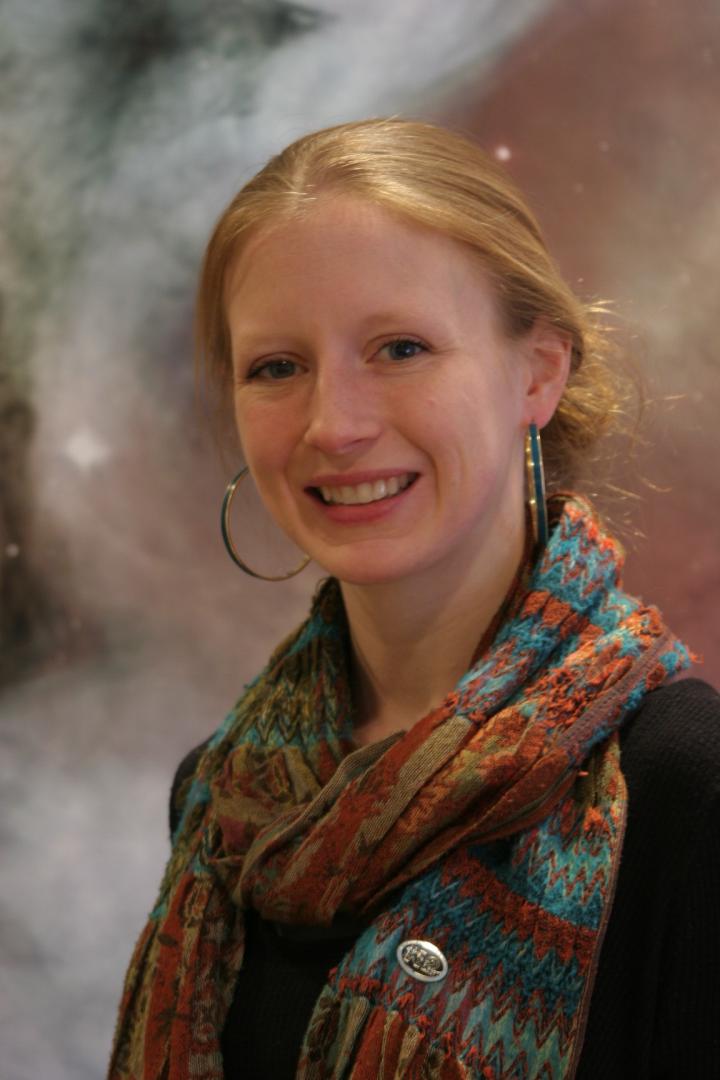
Credit: SMU (Southern Methodist University)
DALLAS (SMU) – Krista Lynne Smith, an assistant professor of physics at SMU, has received a grant from NASA to study one of the most extreme objects in the universe – Active Galactic Nuclei.
These objects, called AGN for short, are galaxies with a central supermassive black hole feeding on gas from what’s called an accretion disk.
The two-year grant of $215,000 will allow Smith to analyze data from NASA’s Transiting Exoplanet Survey Satellite (TESS) to answer a variety of questions about Active Galactic Nuclei and the gas that fuels them.
Learning more about these extreme objects could shed light on the behavior of matter in the deeply warped spacetime around black holes and the processes by which black holes emit powerful jets into their host galaxies.
TESS is an optical telescope that collects light curves on everything in its field of view, every half hour, in an attempt to find new planets outside of our solar system. Light curves are a graph of the light intensity of a celestial object or region as a function of time.
With the NASA grant, Smith will collect data on high-precision optical light curves of thousands of AGN with different black hole masses, accretion rates (the rate at which an object loses energy and momentum as it spirals inward), and host galaxy properties.
Smith has already used TESS data to study other high-energy objects in space. For instance, the light curve data helped Smith and her team spot a gamma-ray burst, one of the brightest explosions in the universe.
###
About SMU
SMU is the nationally ranked global research university in the dynamic city of Dallas. SMU’s alumni, faculty and nearly 12,000 students in eight degree-granting schools demonstrate an entrepreneurial spirit as they lead change in their professions, communities and the world.
Media Contact
Monifa Thomas-Nguyen
[email protected]
Original Source
https:/




